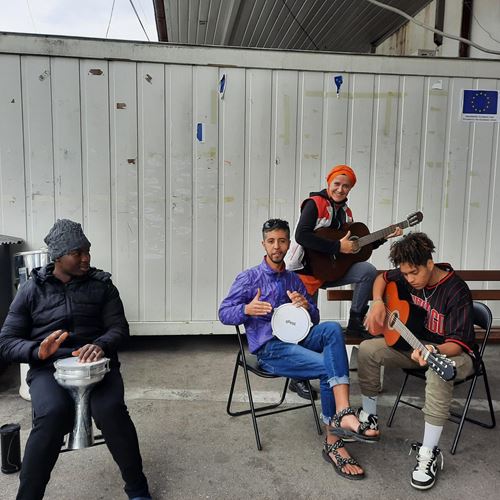A single mother and a prominent fighter against violence against women and young girls, Erdumana Spahić joined the DRC team three and a half years ago as a Cultural mediator and Arabic translator. As a victim of violence, Erdumana promised herself that she would always work with people in need and provide them with the necessary protection.
"DRC is the community where I found myself while working in what I love. It is a small community that has become part of my family, where I have the opportunity to improve myself as a professional and have support, friendship, and harmony over time. Working with people on the move helps me understand how valuable life is and that everyone has the right to live by their own rules," says Erdumana, who compares the work of a cultural mediator to a free bird that flies in the air and helps where needed.
This job is more than a translation, it is a link between two cultures, daily empathetic assistance to exhausted people in the field, in the reception center, or accompanying people to a health or state institution.
"For me, the most important thing is to gain people's trust because that's the only way I can find out the true needs of the person I'm talking to. After that DRC can provide adequate support and protection fulfilling its mission to be there for those who need it the most," emphasizes Erdumana, whose role in cultural mediation and translation during psychosocial sessions is very important.
Since she has experience in personality assessment and has lived for many years in Arab countries where she was active in the field of protecting the rights of women and minor women, Erdumana has a good understanding of the culture and customs of people from that part of the world, which contributes to the faster identification of vulnerable categories and their referral for adequate support.
"It is important to show that we sympathize with the person we are talking to, that we respect culture and customs, that we do not impose our opinion, but that we truly listen letting the person know that we are there and interested in what he/she tells us. Next, it is important to convey the crucial information in the best possible way in the local language and facilitate the work of the rest of our team. Cultural mediation requires emotions to be brought into the work, but also a lot of mental strength because every day we hear difficult life stories that have marked people either in the country of origin or during travel. It often happens that I start to cry, and then I make a move to cover my tears, to get rid of the anxiety in my chest so that I don't make the situation even more difficult for the person I'm talking to," concluded Erdumana, adding that working with people on the move has pulled her out of the depression caused by a difficult past.
